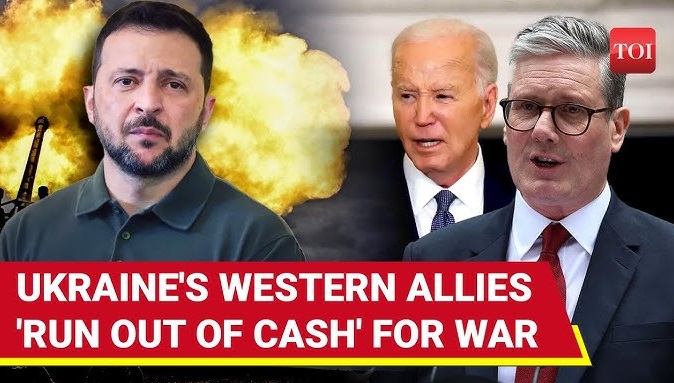
Unless something unexpected intrudes, Vladimir Putin is on course to win the war in Ukraine. His troops are now within military spitting distance of the city of Pokrovsk, in the Ukrainian oblast of Donetsk, writes ‘The New Statesman’.
Pokrovsk is an important hub for the Ukrainian military. If Russian troops manage to capture Pokrovsk, they could move on for the next target, the industrial city of Kramatorsk nearby. One of its main industrial assets is the New Kramatorsk Machinebuilding Factory, which produces mining equipment, and blast furnaces, but also military equipment like components for icebreakers and submarines.
Since February, 2024 Russia has managed to move to its frontline forward occupying some 1,000 square kilometres of Ukrainian land.
Russia’s slow but unrelenting advances are probably the biggest risk to any peace process Donald Trump is trying to impose on both sides. Why would Putin agree to a peace deal if he thinks he can win the war? In the West, a lot of people, including many military and Russia experts, gave in to wishful thinking, hoping that Ukraine can win. Volodymyr Zelensky, who must have grown tired with undelivered Western promises, no longer thinks so himself.
The war could end in 2025, but a peace process would be subject to several risks. The hard part is not the main deal. The frontline will act as the de-facto border.
Trump does not want to pay for the reconstruction of Ukraine. Nor does he want to dispatch US troops. This will leave the Europeans in charge of a task for which they are financially, militarily and politically unprepared. The financial burden is so large that it would either have to be funded through debt, through taxes, or through cuts in social services.
The trade-off between spending for Ukraine, and social spending at home has already become an issue in German politics. Olaf Scholz, the German chancellor, is basing his re-election campaign on fears of an escalation of the war. Macron would, if left alone, be one west Europe’s most effective supporters of Ukraine, but he is hampered by the political chaos in his own country – for which he himself is responsible when he called elections earlier this year. There is not much scope for increased spending for Ukraine anywhere. The UK does not have any fiscal capacity either. Germany does, but has made so many commitments already, that it is hard to see where the money is coming from.
The West’s Ukraine strategy is clearly not working.
The biggest shift that took place was without a doubt the US elections. Until this year, Congress agreed to fund Ukraine, but earlier this month the Republican speaker of the House of Representatives rejected a proposal by the Biden administration for an additional $24 billion in aid for Ukraine. This is it. There will be no more US money. It is the West, not Russia, that is running out of money — or a willingness to spend it on Ukraine.
read more in our Telegram-channel https://t.me/The_International_Affairs

 9:57 07.01.2025 •
9:57 07.01.2025 •






















